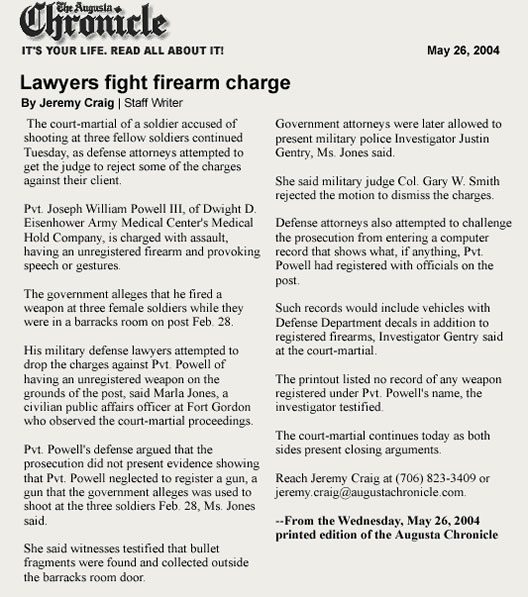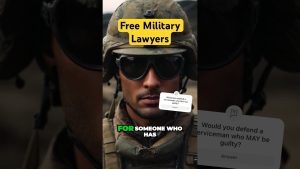Court Martial Defense Lawyers
Military statutes include numerous sex crimes. Military laws try to capture every possible human activity related to sexual misconduct and deviance. However, military sex crimes can be broken down into subcategories such as rape, aggravated sexual assault, abusive sexual contact, child sex crimes, indecent exposure, and child pornography offenses.
Our seasoned court-martial attorneys and their victories set us apart from less experienced attorneys.
If you or a loved one are facing a court-martial for a military Article 120 offense or if you are facing an administrative discharge, NJP, show cause board, letter of reprimand, then reach out to our civilian lawyers immediately.
The suspected Soldier and his or her future is our chief concern. Our court-martial defense lawyers keep lighter caseloads than the typical free military lawyer so that we can concentrate on each trial on an individual basis. Your trial will not be outsourced to a random attorney, and we will not power you into taking a dive at the last minute. Our criminal defense lawyers have contested US Army court-martial and ADSEP cases in the US and worldwide.
Military criminal defense attorneys
Gun Rights In The United States And The Second Amendment
In its ruling in Heller, the Supreme Court interpreted the amendment as if its authors had been motivated by an interest in protecting the common law right to self-defense. The Second Amendment approved substantive rules of common law that protected citizens’ “duty to keep and bear arms and serve in state militias.
The common law right of self-defense is a procedural right available to defendants in criminal proceedings in the States. The idea that the Länder are concerned about a possible violation of this right by the Federation is absurd.
As a result of the Heller and McDonald rulings, federal judges have been given the ultimate authority to determine the validity of state regulations for civilian militias in connection with the use of weapons.
Second Amendment Rights
The court held that the Second Amendment‘s is not limited to prohibitions on firearm possession by serious criminals and mentally ill, punishments for carrying firearms in schools and government buildings or laws regulating the sale of firearms. The last line of contention states that every citizen has an individual right to possess firearms for legitimate purposes, and that the government cannot interfere with this right. The Heller decision described possession of a firearm in the event of a confrontation as a legitimate primary purpose.
While one side interprets its meaning as offering a collective right, the opposite view is that it offers an individual right. One side argues that the regulated militia clause means that the right to bear arms is granted to a formal militia unit to provide protection from a repressive federal government. They believe that the Second Amendment gives states the right to maintain and train such a militia.
The National Rifle Association (NRA) and its supporters are the most visible supporters of this argument and have conducted a vigorous campaign against gun control measures at local, state and federal levels. Those who advocate stricter gun control laws argue that restrictions on gun ownership are needed, including on who owns those weapons, how they are carried, and what types of weapons are available for purchase.
The United States Constitution and its Second Amendment guarantee the right of the people to bear and keep arms. The opposing view is that the amendment gives citizens the right to own firearms without government regulation to protect themselves from danger. According to the Bill of Rights, the Second Amendment does not provide for a “well-regulated militia necessary to defend a state,” but instead provides that the people have a right to bear arms.
The Second Amendment is an amendment to the United States Constitution that was adopted in 1791 as part of the Bill of Rights to ensure constitutional control over Congress’ powers under Article I, Section 8, on the organization, arming and discipline of the federal militia. The second amendment to the US Constitution based on the right to bear and to keep arms under English common law, influenced by the English Bill of Rights of 1689.
Although it was differently argued that the right of ex-slaves to keep and bear arms was provided in the Equality Clause, not in the Due Process Clause, the court found sufficient evidence to support existing concerns about the treatment of blacks in state militias to conclude that the right to keep and bear arms should be protected by applicable state laws. The 5-4 majority held that the language and history of the Second Amendment demonstrate that it protected the private right of individuals to arm themselves for their own defense, not the right of the states to maintain militias. The court reviewed contemporary state constitutions, post-into-inscription comments and subsequent case law and concluded that the purpose of the law, besides the context of the militia, included self-defense.
Although the Heller ruling limited federal regulation to the right to armed self-defense at home, it was unclear whether the Court would apply the Second Amendment guarantees of the Heller Agreement on the states. The court answered that question in 2010 when it ruled in McDonald v. Chicago. The close involvement in Heller and McDonald’s decisions left many Second Amendment legal problems unresolved, including the constitutionality of many Federal gun control provisions, whether the right to carry concealed weapons is protected in public and whether non-citizens are protected by the equality clause of the Fourteenth Amendment.
For the past decade, the Supreme Court has largely avoided gun rights cases. But between 2008 and 2010, the court overturned the ban on handguns in two landmark cases in Washington, D.C., and Chicago that redefined gun law in the United States.
The U.S. Supreme Court’s decision in DC v. Heller (2008) DC V. Heller, which struck down the ban on handguns in Washington, D.C. by a 5-4 vote, established for the first time that the Second Amendment protects the right of individuals to possess and bear weapons that are not associated with a state militia. Justice Antonin Scalia agreed with the appeals court by a 5-4 majority that the handgun ban in the District of Columbia was unconstitutional.
The Second Amendment is widely accepted and there is broad agreement that the federal government does not have the power to violate the people’s right to own and bear arms the same way it does have the power to restrict the freedom of expression or to prohibit the free exercise of religion. There is considerable evidence that the privilege and immunity clause of the Fourteenth Amendment was intended to protect the right of individuals to hold or bear arms, but the Supreme Court ruled against that interpretation in United States v. Cruikshank (1876).





